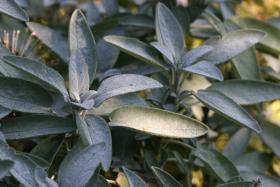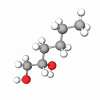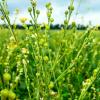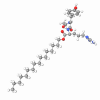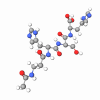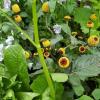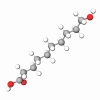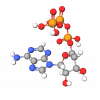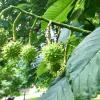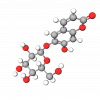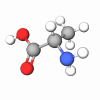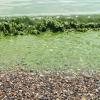Sage (Salvia Officinalis) is a small, woody perennial shrub growing up to a height of 30 inches. It has long grey oval leaves with a velvety texture and a camphor-like taste. Sage plants tolerate most climates except for the monsoonal tropics. In areas of heat or cold, plants are best grown in containers. Sage requires a well-drained position with good air ventilation. Plant seeds in late Spring in seed-raising boxes, and when seedlings are 3-4 inches tall, plant them out into the garden 18 inches apart.
From ancient times, salvia has been used in traditional medicine to treat fever, rheumatism, and sexual weakness. In addition, medieval manuscripts mention its medicinal use against chronic bronchitis and mental and nervous disorders. "Salvia," in Latin, means "heal" or "save."
Sage leaf extract is an organic skincare ingredient and natural antioxidant. The leaves of the small evergreen perennial are used in organic skincare products for their tonic, astringent, and soothing properties. Thanks to the high content of antioxidant compounds, Salvia Officinalis Leaf Extract scavenges free radicals, protecting skin from oxidative stress and UV-induced damage.
Salvia Officinalis Leaf Extract also has potent antifungal properties, fighting against Candida and Aspergillus stains and protecting against fungal infections, especially during depressed immunity periods. Rich in thujones and other antibacterial compounds, this natural antiseptic eliminates harmful bacteria and shields skin from infections and acne.This medicinal plant has numerous properties; Salvia Officinalis Leaf Extract tones, purifies, and cleanses all skin types, stimulates regeneration, and soothes irritation. It can be used as an ingredient in deodorants, softening and refreshing formulations, etc.
